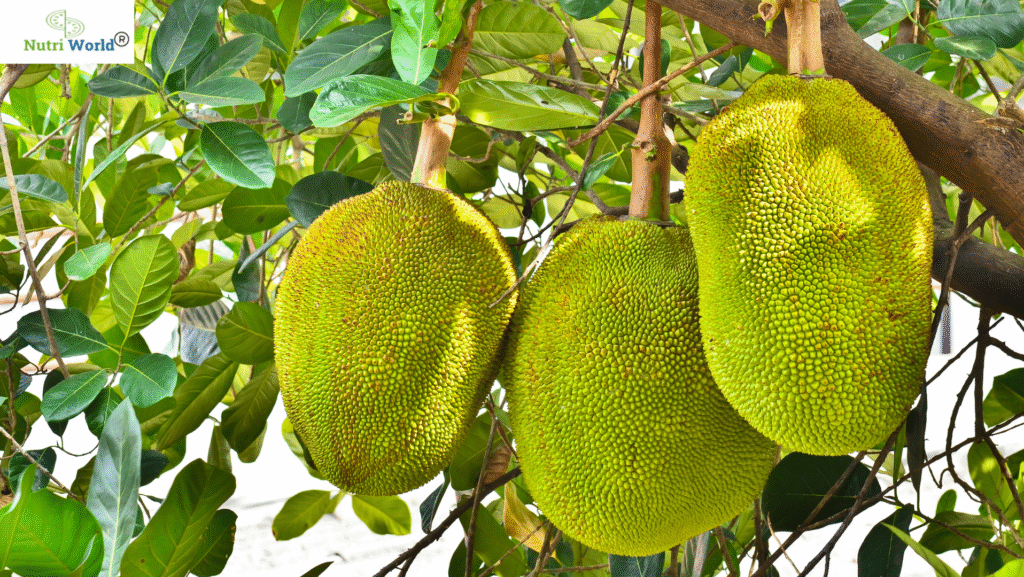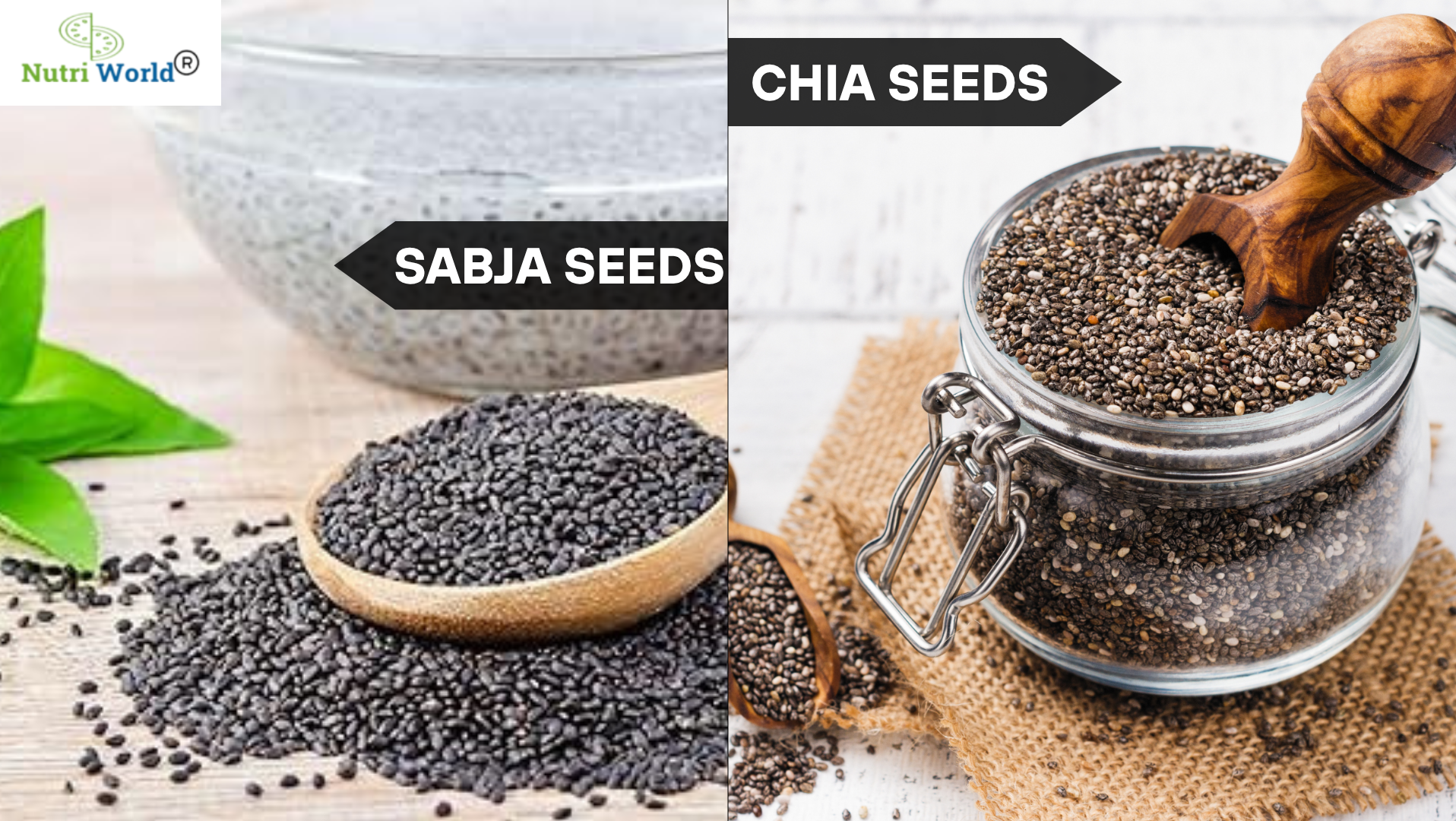Jackfruit, the largest tree-borne fruit in the world, is gaining recognition not just for its unique texture and sweet flavor, but also for its potential health benefits—especially for people with diabetes. But is jackfruit truly a diabetic-friendly fruit, or should it be consumed with caution?

What Is Jackfruit?
Jackfruit (Artocarpus heterophyllus) is a tropical fruit native to South and Southeast Asia. Its large, spiky green exterior hides yellow, fleshy bulbs inside, which can be eaten ripe or cooked when unripe (often used as a meat substitute).
Both ripe and raw jackfruit are consumed in various ways—raw, cooked, dried, or in powdered form. Its seeds are also edible and rich in nutrients.
🔹Nutritional Profile of Jackfruit
Here’s what 100 grams of ripe jackfruit contains approximately:
- Calories: 51
- Carbohydrates: 9.4 g
- Fiber: 1.5 g
- Protein: 2.6 g
- Fat: 0.3 g
- Calcium : 30 mg
- Iron : 7
(Source : C. Gopalan )
Jackfruit is a rich source of vitamin C, potassium, and antioxidants, and also contains some protein and dietary fiber.
🔹Is Jackfruit Good for Diabetes?
1. Glycemic Index of Jackfruit
The glycemic index (GI) measures how quickly a carbohydrate-containing food raises blood sugar. Foods are classified as:
- Low GI: 55 or less
- Medium GI: 56–69
- High GI: 70 or more
Ripe jackfruit has a moderate glycemic index (approx. 50–60), meaning it does not cause a sudden spike in blood sugar when consumed in moderate amounts.
2. Fiber Content Helps Control Blood Sugar
Jackfruit contains dietary fiber, which slows down digestion and glucose absorption. This helps maintain steady blood sugar levels, especially when eaten as part of a balanced meal.
3. Presence of Natural Antioxidants
Jackfruit contains flavonoids and other antioxidants that reduce oxidative stress—often elevated in people with diabetes. These compounds can support better insulin sensitivity and overall metabolic health.
4. Jackfruit Flour and Diabetes
Interestingly, jackfruit seed flour and green jackfruit flour have gained popularity as diabetic-friendly options. Studies have shown that replacing a portion of white rice or wheat flour with green jackfruit flour can help reduce postprandial (after-meal) blood glucose spikes.
🔹Ripe vs. Raw Jackfruit for Diabetics
- Raw (Unripe) Jackfruit: Lower in sugar and higher in fiber and resistant starch. It behaves more like a vegetable and is safer for diabetics when cooked into curries or stir-fries.
- Ripe Jackfruit: Sweeter with more natural sugars. It should be consumed in moderation, ideally combined with a protein or healthy fat to blunt the glycemic response.
🔹How to Include Jackfruit in a Diabetic Diet
Here are some tips for consuming jackfruit wisely:
- Choose raw jackfruit over ripe for better blood sugar control.
- Combine ripe jackfruit with nuts, seeds, or yogurt to lower its glycemic impact.
- Use jackfruit flour in rotis, pancakes, or baking as a healthier alternative to refined flours.
- Portion control is key: Limit ripe jackfruit to ½ cup per serving.
- Monitor blood sugar levels after consuming jackfruit to assess your individual response.
- Choose raw jackfruit over ripe for better blood sugar control.
🔹Health Benefits of Jackfruit for Diabetics
- Improves digestion due to fiber content.
- May support weight management, an important aspect of sugar control.
- Helps reduce cholesterol thanks to its soluble fiber and antioxidant properties.
- Boosts immunity through its vitamin C content.
- May improve insulin sensitivity (based on early studies involving jackfruit flour).
🔹Risks and Considerations
- High in natural sugars: Ripe jackfruit can raise blood glucose if eaten in excess.
- Portion size matters: Always consume jackfruit in moderation.
- Not suitable for all diabetic individuals: Individual blood sugar responses may vary.
- May interact with medications: Always consult your doctor before making major dietary changes.
FAQs About Jackfruit and Diabetes
Q1. Can diabetics eat jackfruit every day?
Q2. Is jackfruit better than mango or banana for diabetics?
Q3. Is jackfruit flour good for blood sugar control?
Q4. Can jackfruit replace meat in a diabetic meal?
Q5. Does jackfruit cause weight gain?
Final Verdict: Should Diabetics Eat Jackfruit?
Yes—jackfruit can be a part of a healthy diabetic diet when chosen and consumed wisely. Raw jackfruit and jackfruit flour are better choices than ripe jackfruit due to their lower sugar content. As with any food, moderation and balance are key, and it’s best to monitor your body’s response after consumption.
If you’re diabetic and enjoy tropical flavors, jackfruit can offer variety and nutrition to your meals—just make sure it fits within your personalized dietary plan.

Hi, I’m Dietitian Dipanwita Saha, A Clinical Dietitian & Nutripreneur and The Founder & Director of Nutri World. I believe healthy eating should be enjoyable, balanced, and free from guilt—not about strict rules or cutting out your favorite foods. My passion lies in helping people heal their relationship with food, especially those dealing with disordered eating. If you’re looking for a supportive, judgment-free space to nourish your body and mind, I’m here to help—let’s make food feel good again.










